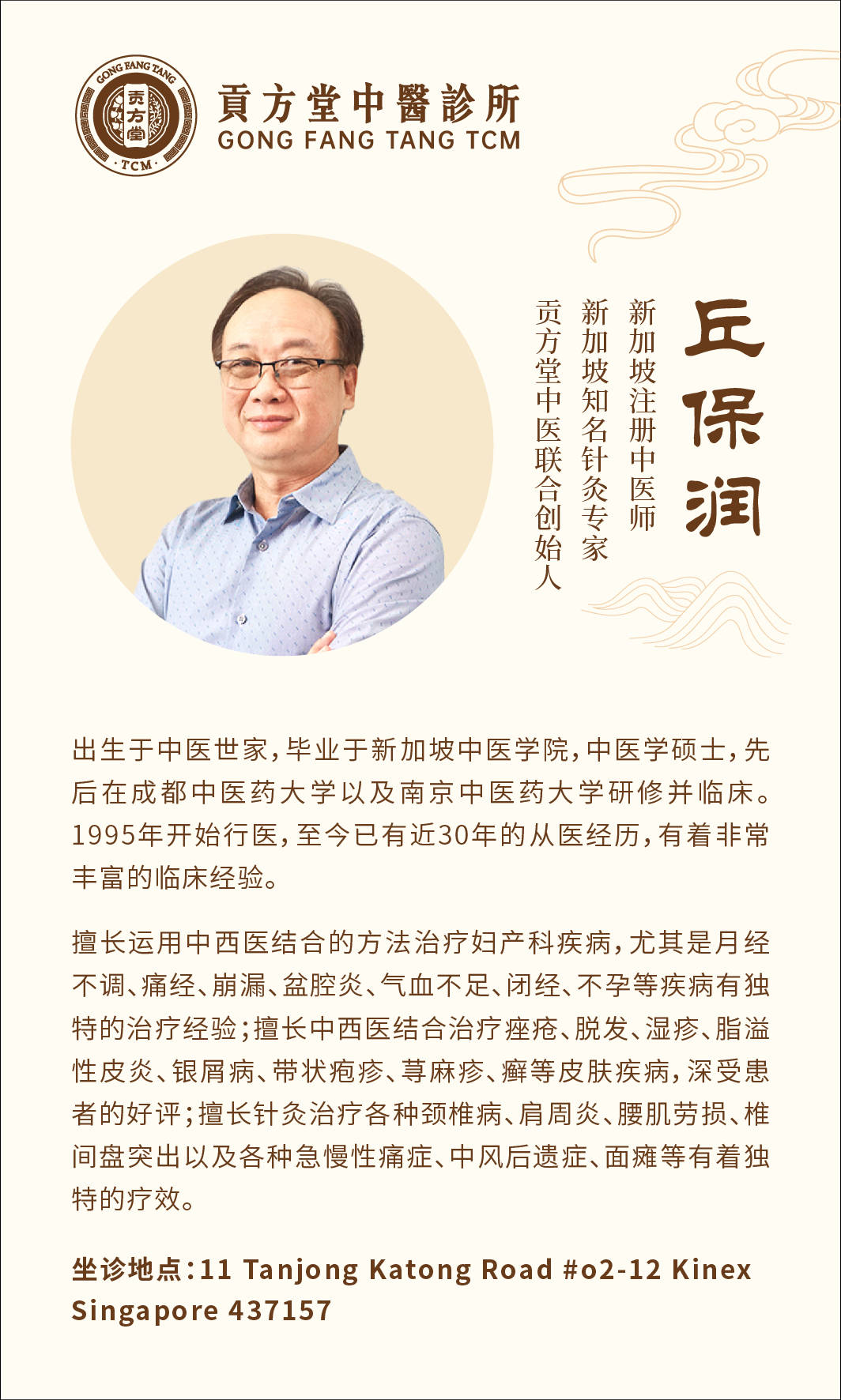- Physicians
- Clinics
- TCM
- Western GP
-
Fees
-
Deals & Privileges
- About & Resources
- Contact Us
A decrease in menstrual flow is an issue that causes anxiety for many women, as it often seems to be associated with aging, premature ovarian failure, and similar concerns. Don't assume that "less is less trouble"—scanty periods may actually be your body's distress signal!
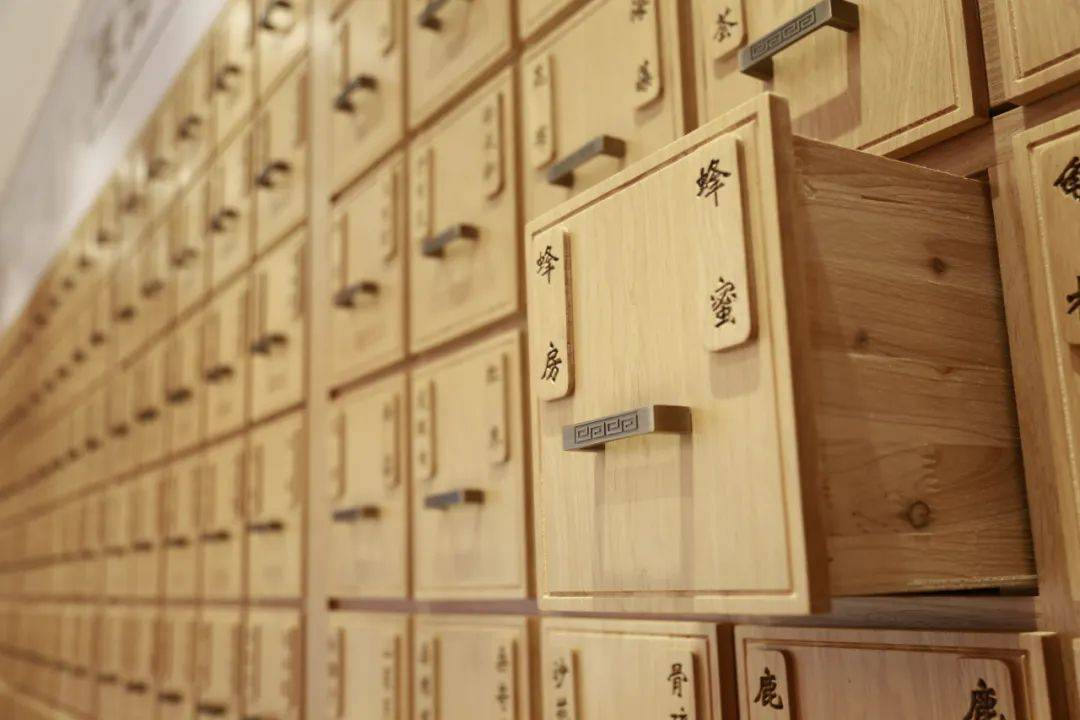
How Much Menstrual Flow Is Considered Normal?
First, it’s important to clarify that many women’s menstrual flow is not actually "too little."
A normal menstrual cycle ranges from 21 to 35 days, with a total flow of 20–60ml per period considered normal. If it exceeds 80ml, it’s classified as heavy menstrual bleeding, while less than 5ml is termed scanty menstruation.
What does 5ml look like? It means you might not even need to use sanitary pads—just a few panty liners throughout your entire period.
What Causes Scanty Menstruation?
According to TCM gynecology expert Dr. Que Poh Yuen Albert from Singapore’s Gong Fang Tang TCM Clinic, in Traditional Chinese Medicine, menstruation is seen as a "spokesperson" for qi and blood. Scanty flow is mainly linked to the following factors:
Blood Deficiency: The body is "starving" from lack of blood.
Long-term dieting or overexertion is like "cutting off supplies" to the body, leading to insufficient qi and blood production. Major illnesses or excessive blood loss during childbirth can also deplete the "blood sea," leaving menstruation "short on resources."
Qi Stagnation & Blood Stasis: Menstrual blood is "stuck in traffic."
Holding in anger, chronic stress, or liver qi stagnation disrupts blood flow like a "traffic jam." Prolonged sitting, excessive cold food, or exposure to cold can cause blood to congeal into "tiny ice blocks," making it harder to flow smoothly.
Phlegm-Dampness Obstruction: The body is "clogged" by dampness.
A diet high in greasy or sweet foods, combined with lack of exercise, leads to phlegm-dampness accumulation—like thick "mud" trapping qi and blood. This can result in light periods, often accompanied by weight gain and increased vaginal discharge.
Kidney Deficiency: The body’s "energy reserve" is running low.
Congenital kidney qi deficiency, chronic exhaustion, or frequent late nights "overdraw" kidney essence—like a phone with low battery. When the reproductive system lacks "power," menstrual flow decreases.

Many people ask: Does scanty menstruation mean premature ovarian failure?
Data shows that among patients aged 15–20, polycystic ovary syndrome (PCOS) is the primary cause of scanty menstruation. For those aged 21–25 and 26–35, intrauterine adhesions are the main factor, while in patients aged 36–40, premature ovarian failure is more common.
Other contributing factors include endocrine disorders, endometrial damage, developmental abnormalities, excessive stress, lack of sleep, and restrictive dieting.
How Does TCM Treat Scanty Menstruation?
TCM treatment first differentiates between deficiency (虚) and excess (实) patterns.
For deficiency patterns, the focus is on nourishing the kidneys, replenishing essence and blood.
For excess patterns, the approach involves activating blood circulation, unblocking stagnation, and incorporating warming, qi-moving, or phlegm-resolving methods.
In cases of mixed deficiency-excess patterns, a combination of tonifying and dispersing strategies is used.
Additionally, treatment varies between non-menstrual and menstrual phases:
For deficiency patterns:
Between periods: Emphasis is on nourishing blood, tonifying the kidneys, or replenishing qi to regulate menstruation.
During menstruation: Blood-nourishing and circulation-activating herbs (e.g., Spatholobus suberectus, Salvia miltiorrhiza) are added.
For excess patterns:
Between periods: Therapies focus on dispersing stagnation—either活血化瘀 (invigorating blood to resolve stasis) or化痰燥湿 (resolving phlegm-dampness).
During menstruation: Warming and blood-moving herbs (e.g., Angelica sinensis, Ligusticum chuanxiong, Cyathula officinalis) are prioritized, while overly astringent or yin-nourishing herbs are minimized.
The Ultimate TCM Blood-Tonic Formula: Si Wu Tang (Four-Substance Decoction)
With over 1,000 years of use in China, Si Wu Tang is renowned for regulating and replenishing blood. Its formula is designed to:
Tonify without causing stagnation,
Warm without inducing dryness,
Nourish blood without promoting stasis,
Move blood without depleting it.
This classic prescription effectively addresses blood-deficiency-related menstrual disorders and remains a cornerstone of TCM gynecology, earning the title of "Women’s Top Blood-Nourishing Formula."
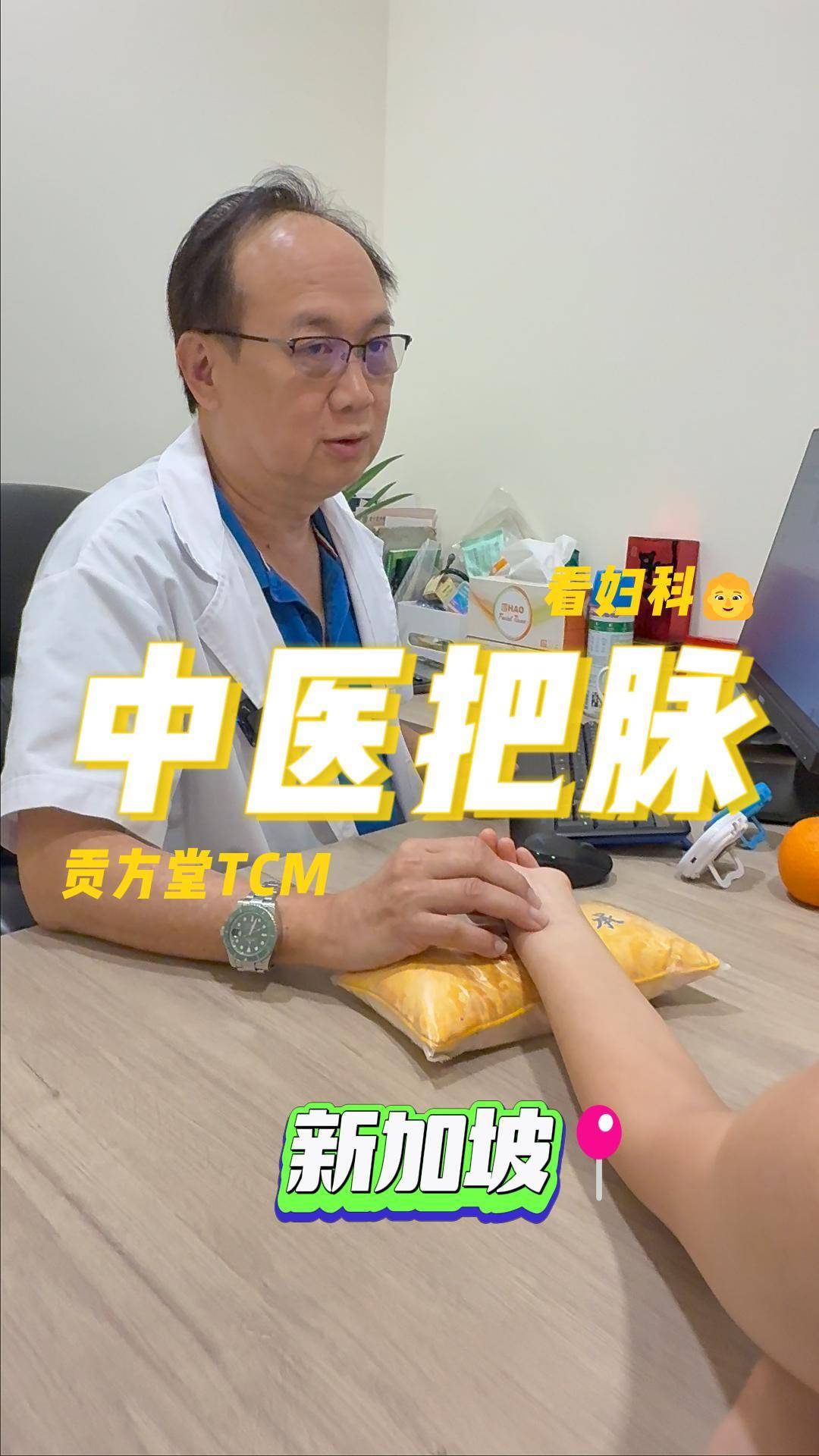
Oral Chinese Herbal Medicine: Nourishing Qi and Blood at the Root
The first step is identifying the underlying cause for targeted treatment. Based on TCM pattern differentiation, herbal formulas may be prescribed to:
Tonify the kidneys and replenish essence to regulate menstruation,
Nourish blood and boost qi to regulate menstruation,
Activate blood circulation and resolve stasis to regulate menstruation,
Resolve phlegm and dry dampness to regulate menstruation,
Warm the meridians and dispel cold to regulate menstruation, etc.
Regardless of the pattern, through proper TCM diagnosis and tailored treatment with accurate herbal prescriptions, satisfactory results can be achieved.
Acupressure: Your Portable "Menstrual Regulator"
Daily massage of these key points can promote qi and blood circulation:
Sanyinjiao (SP6): On the inner leg, 3 cun (about 4 fingers' width) above the medial ankle bone.
Xuehai (SP10): On the inner thigh, 2 cun above the medial upper border of the kneecap.
Guanyuan (RN4): 3 cun below
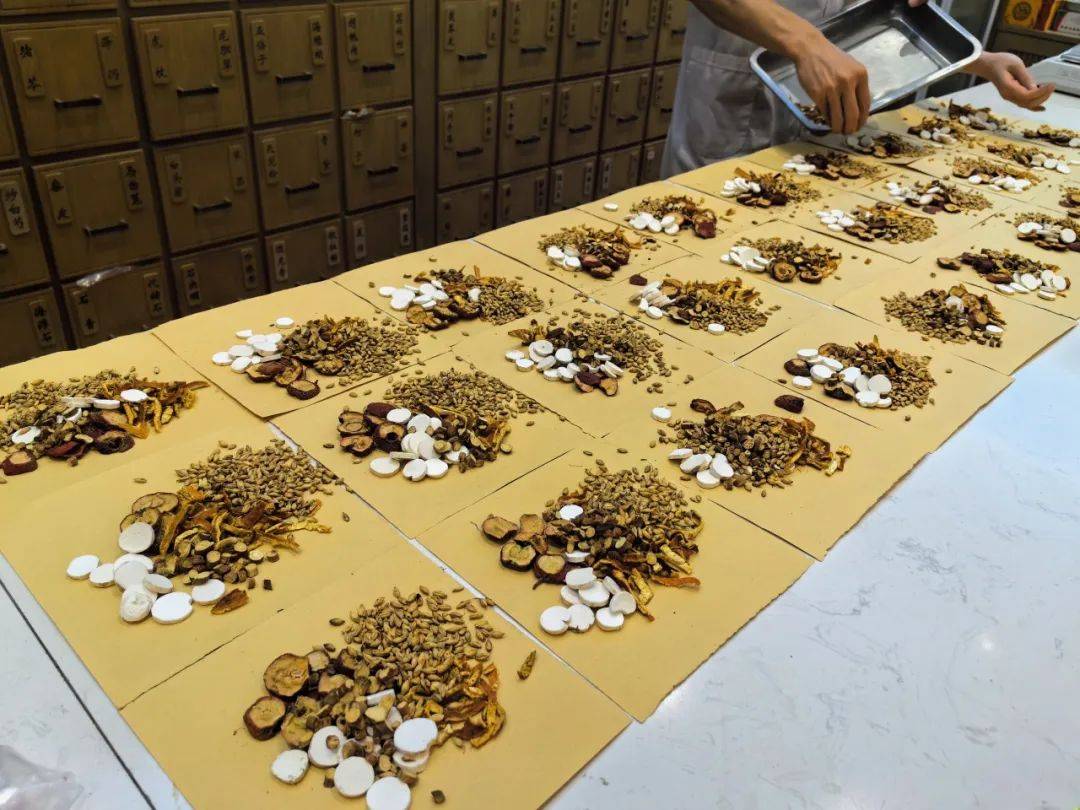
Moxibustion for Warming the Uterus: "Heating Up" the Womb
Use a moxa stick to apply suspended moxibustion on the following points:
Shenque (RN8) – the navel
Qihai (RN6) – 1.5 cun below the navel
Mingmen (DU4) – on the back, directly opposite the navel
Apply for 15–20 minutes per session to warm the uterus and dispel cold.
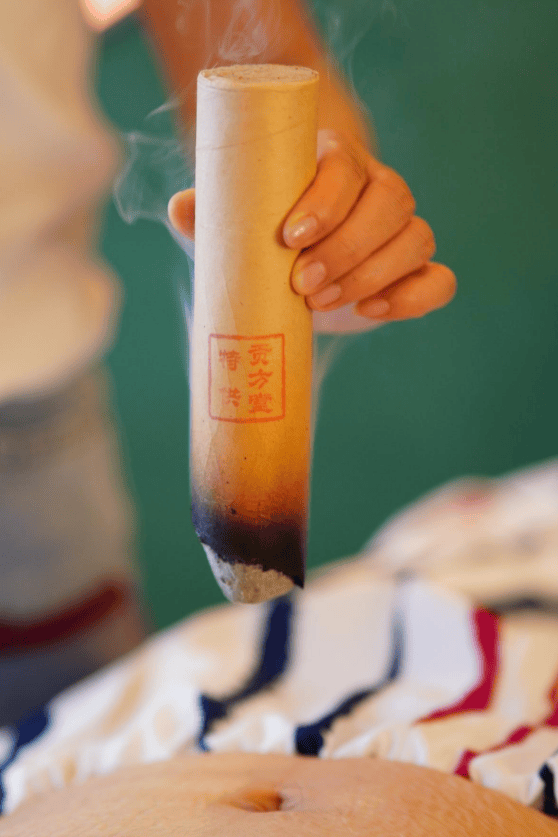 According to the International Federation of Gynecology and Obstetrics (FIGO), most cases of "hypomenorrhea" (scanty menstruation) are not caused by pathological changes—meaning the majority of reduced menstrual flow does not require treatment. Therefore, light periods are not necessarily linked to infertility or aging. If no significant abnormalities are found in the relevant examinations, women can relax, maintain a balanced diet and regular routine, and live (or prepare for pregnancy) with peace of mind.
According to the International Federation of Gynecology and Obstetrics (FIGO), most cases of "hypomenorrhea" (scanty menstruation) are not caused by pathological changes—meaning the majority of reduced menstrual flow does not require treatment. Therefore, light periods are not necessarily linked to infertility or aging. If no significant abnormalities are found in the relevant examinations, women can relax, maintain a balanced diet and regular routine, and live (or prepare for pregnancy) with peace of mind.
